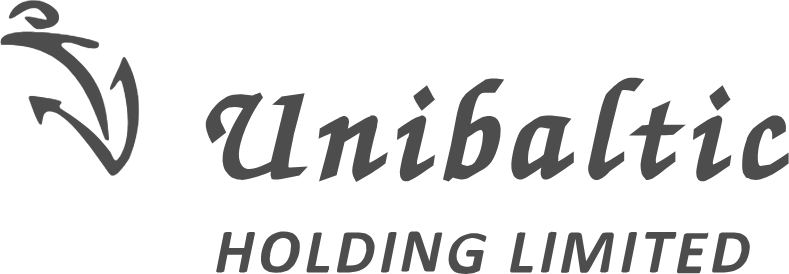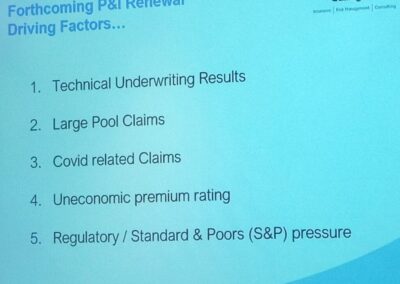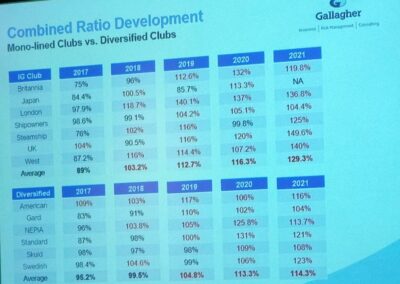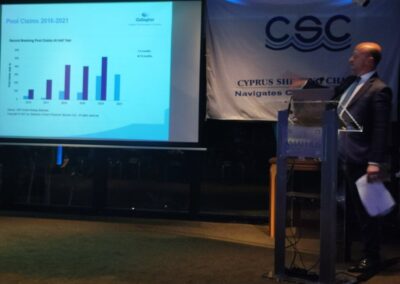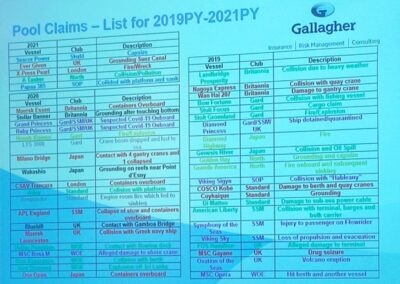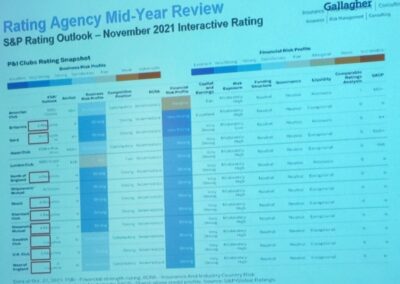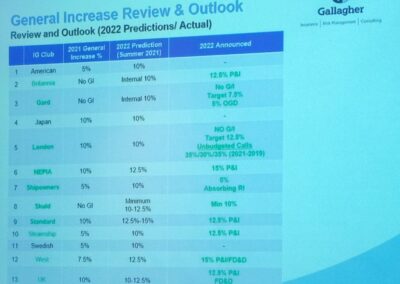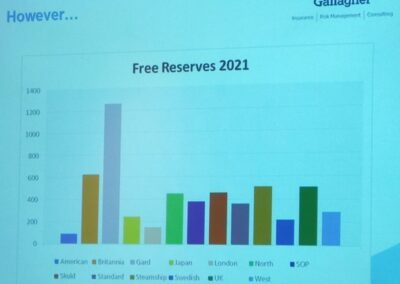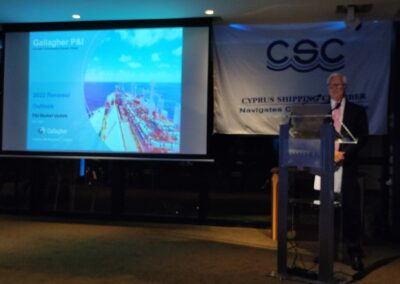On 17th of November a monthly meeting of the Cyprus Shipping Chamber was held. Once again it was organized in the Amathus Hotel premises. The meeting was opened by Mr. Ervin Derlagen, a member of the Chamber’s Board of Directors. After the usual round down on the Chamber’s matters, the floor was given to the Gallagher representatives.
The short presentation under the title „Forthcoming P&I Renewal. Are we heading into a perfect storm?” was aimed at introducing the Gallagher’s position on the renewal of the P&I policies and expected increases in membership fees. Despite the fact that each of the Clubs has a large free reserves, in recent years they have had to pay out multi-million compensation. The Ever Given case is a good example of that. In addition, increases are also forced by rating agencies to increase profitability and maintain a good rating score. a drop in the rating would cause large image losses for the Clubs, and thus the departure of their clients. It was stated that premium increases should also be expected in the coming years. Gallagher estimates that the amount of contributions should return to those of 2015.
